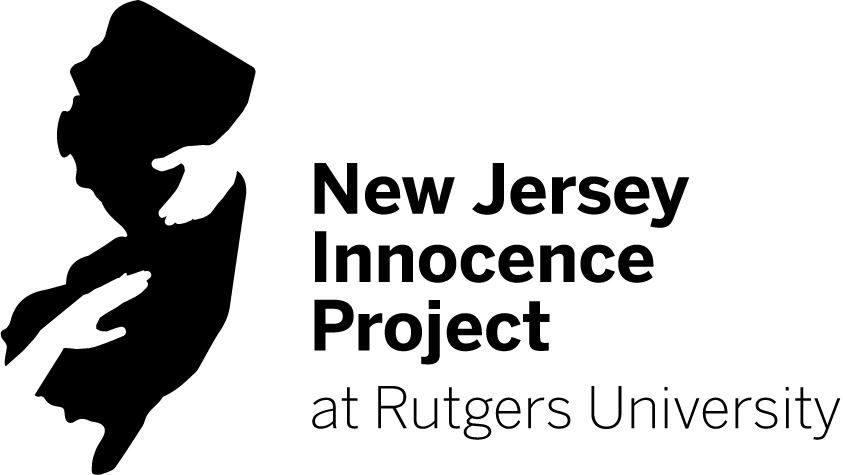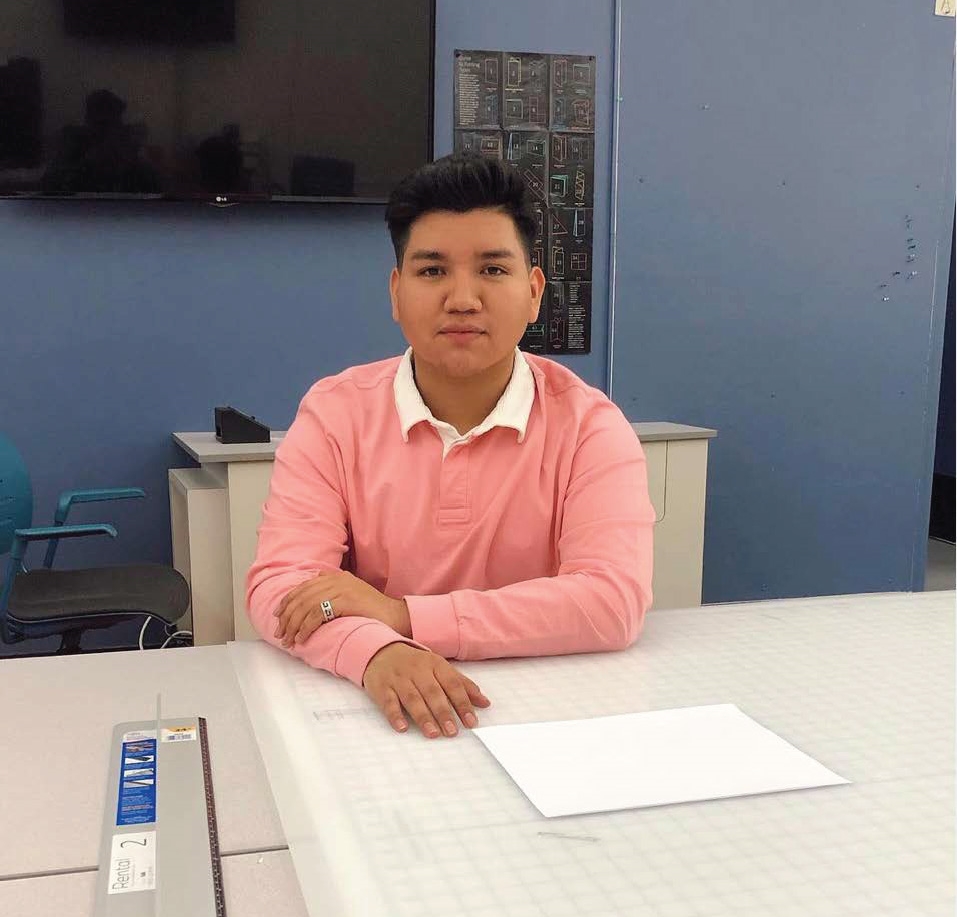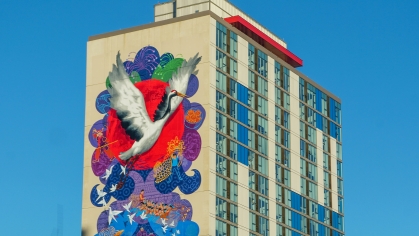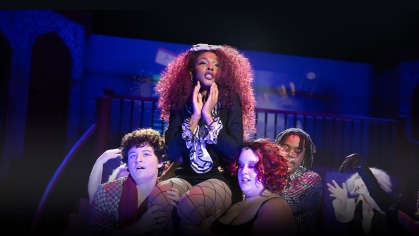Graphic Design Graduate Leans on Lessons Learned to Design Logo for New Jersey Innocence Project

The New Jersey Innocence Project recently unveiled a new logo, featuring two hands reaching out over an outline of the Garden State. It is a simple, yet powerful image meant to draw attention to the plight of wrongfully convicted persons in New Jersey, as well as the importance for others to join in this critical effort, explains its creator Emiliano Alquezada.
“Sometimes, we as humans need a little help to experience a better life,” says Alquezada, who graduated this May from Rutgers University–Camden with a bachelor's degree in graphic design. “But with a little determination and hard work, we can give people a new opportunity.”
A little help. Hard work. A new opportunity. To the Millville resident and Bridgeton native, the words are more than just window dressing meant to put the final touches on a well-appointed design. Rather, they represent time-honored lessons that he learned at an early age – and the knowledge that future possibilities await those who are granted and make the most of their opportunities.
It wasn’t long ago, he recalls, that his mother and her young family were the ones who needed a helping hand, and a stranger – who would soon become like family – was there to offer assistance. He explains that, despite not knowing how to read or write in English, his mother made the journey alone from her native Guatemala to the United States in search of better opportunities.
She settled in Florida and soon made her way to Bridgeton. Years later, despite being allowed to reside in the country legally, she contacted a local lawyer to help her gain legal citizenship. The lawyer took up her case and even offered her a job cleaning the office to cover legal expenses, in addition to paying her an hourly wage.
Alquezada was soon helping his mom clean the office two days a week. Like clockwork, he recalls, he would come home, eat his dinner, and then head to work with her. When the job was done, he would come home and complete all of his homework.

Emiliano Alquezada
His work ethic and dedication to his studies – a relentless “desire to learn, work, and grow no matter what” – made quite an impression on the lawyer, who hired him to tutor her elementary-age son in English, social studies, and mathematics.
While attending Cumberland Regional High School, Alquezada then worked as a legal assistant in the law office, where he engaged with clients and attorneys, and processed transactions with the U.S. Citizenship and Immigration Services office. The irony of working in the law office was not lost on him.
“I had quickly gone from a kid whose mother didn’t even know how to read and write English to working in a law office,” says the Rutgers–Camden graduate. “That showed me that, despite coming from a disadvantaged background, you can still work your way out of it. That was a profound realization for me.”
In fall 2017, Alquezada arrived at Rutgers–Camden, following in the footsteps of his brother, Miguel Alquezada, a 2020 graduate with a bachelor’s degree in graphic design, and his sister, Maria Alquezada, a marketing major.
During his time on campus, he showed his hallmark work ethic. In addition to being a full-time student, he worked two jobs throughout the academic year: serving as the print manager in the Contact Center, and as a customer service representative in the Office of Student Accounting, Billing, and Cashier Services. Even in the summer, he took classes while working part-time at a local ice cream shop in Bridgeton.
“I think that mindset of hard work has really allowed me to motivate myself and to work harder in my studies and my jobs,” he says. “I wanted to finish my degree to show other people that, despite the hard work, in the end, it’s all worth it.”
Alquezada and his brother also started a Rutgers–Camden chapter of AIGA, the professional association for design. The group frequently brings in guest speakers to share their expertise throughout the academic year. True to form, he was also there to help his fellow graphic design students, such as offering resume critiques, whenever he could.
The Rutgers–Camden graduate is quick to point out, however, that he is still growing and learning himself. He acknowledges that he was initially only interested in developing the technical aspects of design for a future career in advertising. That was until his Rutgers–Camden professors encouraged him to dig deeper and utilize the tools at his disposal to communicate messages that are important to him personally as well as society at large.
“That mindset was very unexpected for me,” he says. “I thought that design was something to sell, like advertisements or posters.”
Such was his mindset, he says, when he delved into images that would convey his message of hope and support inherent in the logo he created for the New Jersey Innocence Project. When he learned about victims of false imprisonment, he says, he felt that connection of hardship – and the power of perseverance.
“I can see how hard someone needs to work to succeed, but I also know that the power of hard work can pay off,” he says. “Looking back now, I realize that there are a lot of influences from my own background, and now I am using those influences in my work.”


